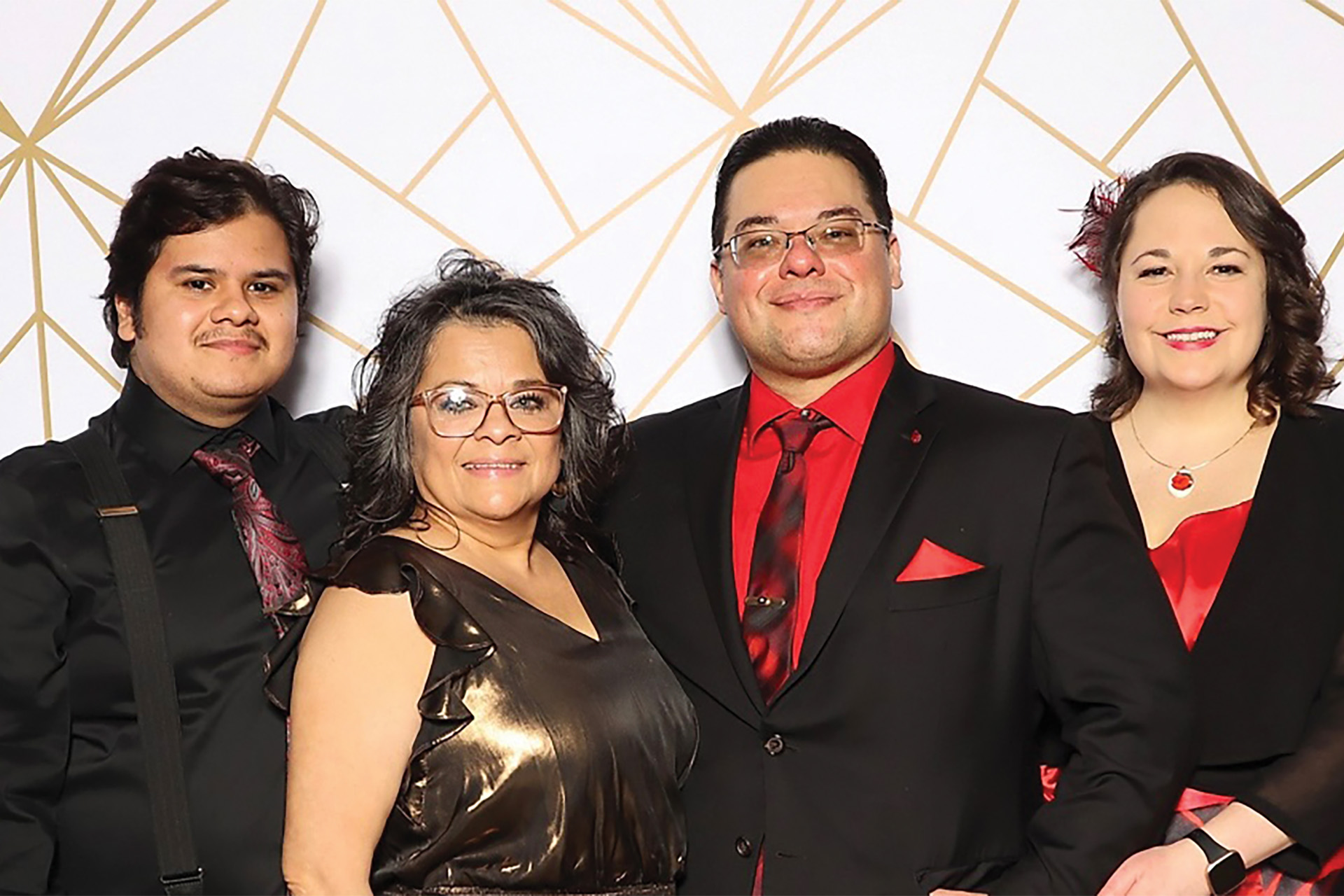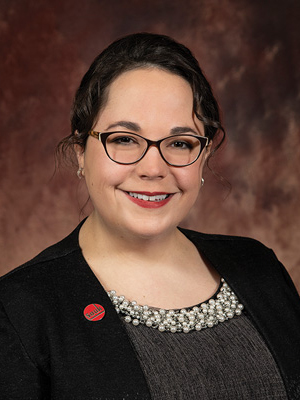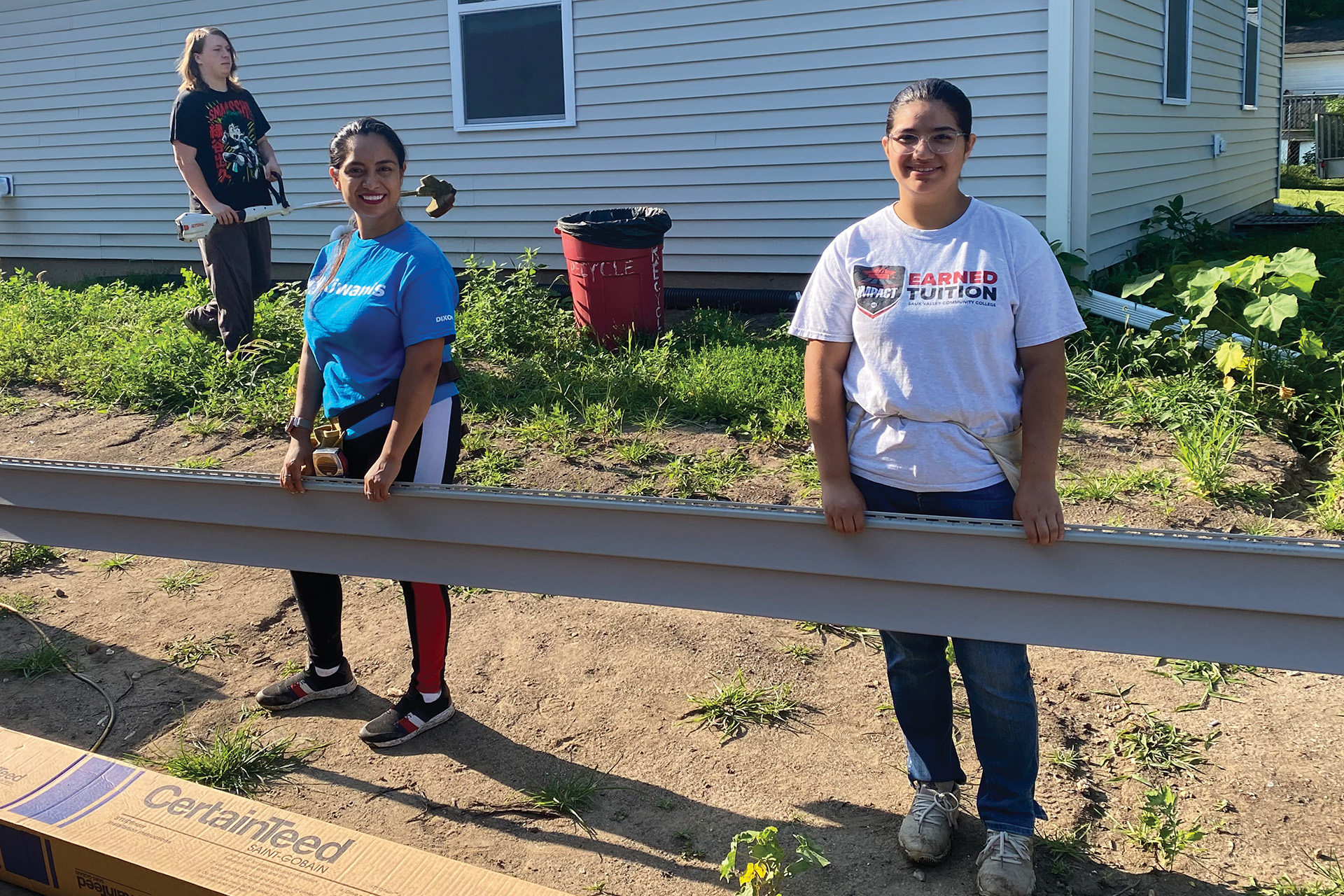If you were to visit Sauk Valley Community College (SVCC) in Illinois, you might think you’ve traveled to a parallel universe. Where Delta has the Possible Dream program and A Chocolate Affair, SVCC has the Impact program and A Chocolate Rendezvous.
Dr. Lori Cortez, vice president of advancement at SVCC and 2003 graduate of Delta College, has built her career around her personal passion for breaking generational cycles of poverty, starting with her own.
It all began at Nouvel Catholic Central high school, where she fell in love with a boy. That boy had a strong-willed mother who told Lori, “No son of mine will be dating a woman without a college education.” So, they piled into a car and drove to Delta, where Lori and her now husband, both enrolled. Coming from a low-income family, Lori never thought about going to college. That possibility was never a topic of discussion in her home. But from that point forward, she credits Delta with propelling her toward her future.
“Delta changed the trajectory of my life,” Lori recalled. “Being a first-generation college student, I was able to break the generational cycle of poverty. I learned the value of public service. And I really came to love community colleges.”
Lori went on to earn her bachelor’s degree, master’s degree and Ed.D from Central Michigan University and taught at MidMichigan Community College for a time before moving to Illinois, joining Sauk Valley Community College in 2014 as their director of TRIO Student Support Services.
Fueled by her own experience and desire to make college an attainable dream for students in her community, Lori drew inspiration from Delta’s Possible Dream program, and proposed a similar program at SVCC. After receiving support from her community, she returned to her alma mater around 2016 to be mentored by Pam Clark, executive director of institutional advancement at Delta College. With Pam’s guidance, Lori gained an understanding that these efforts are not just about giving out scholarships and getting students to college.
At its core, it’s about workforce development. Equipping students with the tools they need to succeed when they graduate. Proceeding with the development of SVCC’s Impact program, the focus remained on, “Living the community college mission of solving their regional problems.”
It took years to get all the pieces into place, but with determination, dedication and much support, the SVCC Impact program and their annual fundraising event, called A Chocolate Rendezvous, were born.
Their program has high school students earning 100% of their college tuition and fees through community volunteerism by committing 100 hours of community service throughout their high school careers. They have had over 1,200 registered students provide over 32,000 volunteer hours to over 200 participating nonprofits. SVCC is in the third year of their five-year goal of raising $10 million to establish an endowment for the program. They have successfully raised $6.3 million, so far, and Lori was credited with securing the college’s largest one-time gift of $1 million from an anonymous donor.
Lori makes a point to go above and beyond the professional job description. It’s a
trait that she cherishes after her experiences interacting with Delta faculty and
staff as a student. “After I transferred to CMU, I remember reaching back out to Delta’s
Financial Aid office because I was having trouble navigating CMU’s financial aid system.
Kim Donat, the director of Financial Aid at the time, walked me through it, even though
I wasn’t a student there anymore, because he cared for me.
That ‘Delta Difference’ is how I knew I wanted to work
in community colleges.”
The Impact program hits home with Lori when she sees the difference it’s making for students and nonprofits in her community. “If it wasn’t for Delta College, I would not be where I am today. I want to share with kids that college is possible and that they can change the course of their life.”
"Delta changed the trajectory of my life. Being a first-generation college student, I was able to break the generational cycle of poverty. I learned the value of public service."


